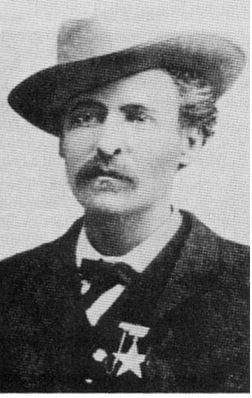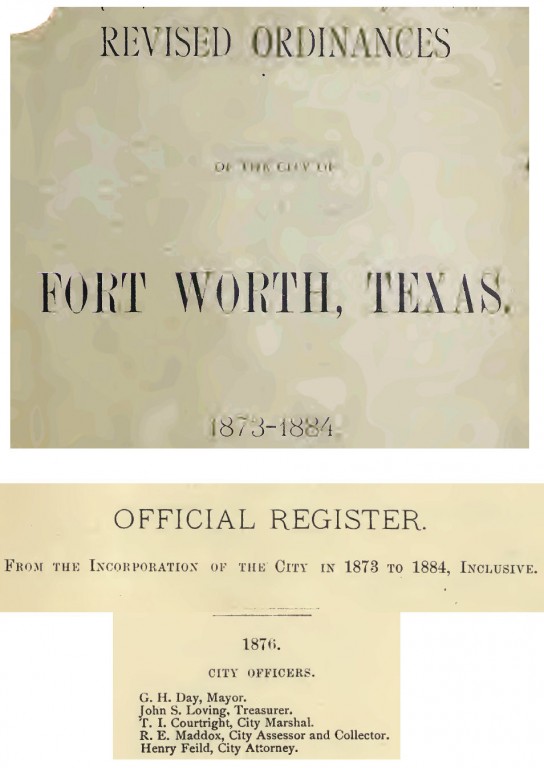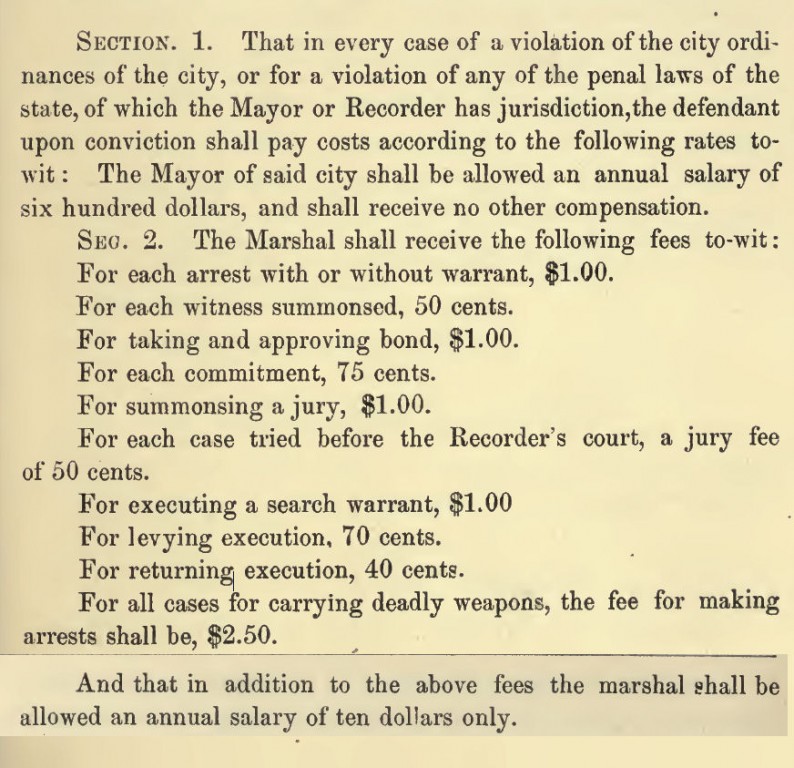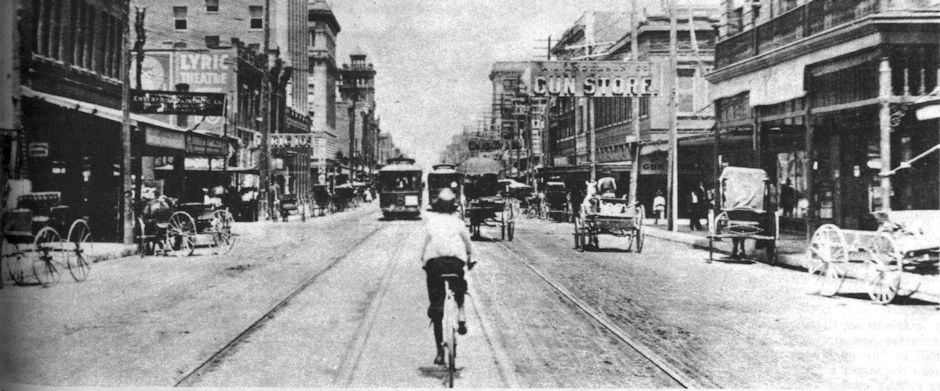Beginning in 1876, eleven years before his fatal confrontation with Luke Short, Jim Courtright served three terms as city marshal (police chief) of Fort Worth.
 Fort Worth had incorporated only three years earlier and was still wild and woolly, with much rootin’ and/or tootin’.
Fort Worth had incorporated only three years earlier and was still wild and woolly, with much rootin’ and/or tootin’.
 According to Revised Ordinances of the City of Fort Worth 1873-1884, the first duty of the city marshal was to “quell riots, disorder and disturbances of the peace within the limits of the city and . . . take into custody all persons offending against the peace of the city.”
According to Revised Ordinances of the City of Fort Worth 1873-1884, the first duty of the city marshal was to “quell riots, disorder and disturbances of the peace within the limits of the city and . . . take into custody all persons offending against the peace of the city.”
Those offenders included what we might call the “four Ds”:
Drunk: “any person who shall get drunk or be found in a state of intoxication in any public place in this city.”
Discharger of firearms: “any person or persons [who shall] shoot off, fire, or discharge any gun, pistol, revolver or any firearm of any description, or fire, explode or set off any squib, firecracker, torpedo, roman candle, sky-rocket, or other thing containing powder or other explosive matter, or throw any fireball or make any bonfire in the corporate limits of this city.”
Diceman: “any person who shall keep or maintain or be in any manner interested in the keeping or maintaining of any gambling house.”
Demimonde: “any prostitute, courtesan or lewd woman who shall ply, or seek to ply, her avocation by word, sign or action, while upon the streets, alleys or public places of said city, or from the door or window of any house, or window of any room or house that may be seen from any street, alley or public place in said city, or from any private residence of said city.”
 And the salary of the city marshal charged with arresting all these offenders? Ten bucks. A year. Ah, but then there was fee-splitting. The city paid its marshal a fee for each arrest made, each warrant served, and so on. Notice that because of the risk, the fee for making an arrest involving deadly weapons was $2.50.
And the salary of the city marshal charged with arresting all these offenders? Ten bucks. A year. Ah, but then there was fee-splitting. The city paid its marshal a fee for each arrest made, each warrant served, and so on. Notice that because of the risk, the fee for making an arrest involving deadly weapons was $2.50.
But there was more to the city marshal’s job than roundin’ up drunk saddle tramps and fancy women. According to the book of city ordinances, it was also the job of the city marshal to
• round up stray hogs
• bring in people for vaccination to prevent spread of smallpox
• summon citizens for mayor’s court jury
• assign to public works labor any prisoner who can’t pay a fine
• commit to jail to be fed bread and water any prisoner who refuses to work
• direct the city scavenger (another municipal position) to pick up and dispose of garbage, dead animals, and other offensive matter
• close “any theatre, bar room, ball room, drinking house or any other place or building of public resort” to prevent a breach of the peace
• order owners of broken sidewalks to repair said sidewalks
• remove obstructions from sidewalks
• notify the telegraph company if its wires are less than twenty-five feet above the ground on Main and Houston streets
• notify owners of mills or machinery if their smoke stacks are less than forty feet tall
• notify owners of theaters and public halls if their stairways and doors violate city ordinances
• seize and destroy horses diseased with glanders or farcy
• destroy stray dogs not claimed within twenty-four hours
• arrest solicitors who harass people
• remove structures that violate the city fire code
• give directions to strangers
• warn strangers against places in town where “idlers, gamblers, or prostitutes congregate, and against all vicious persons”
Whew.
Of course, Jim Courtright’s philosophy of law enforcement hewed closer to the spirit of the law than to the letter of the law. He didn’t go by the book. If he had, he might have been too busy to become a legend.





